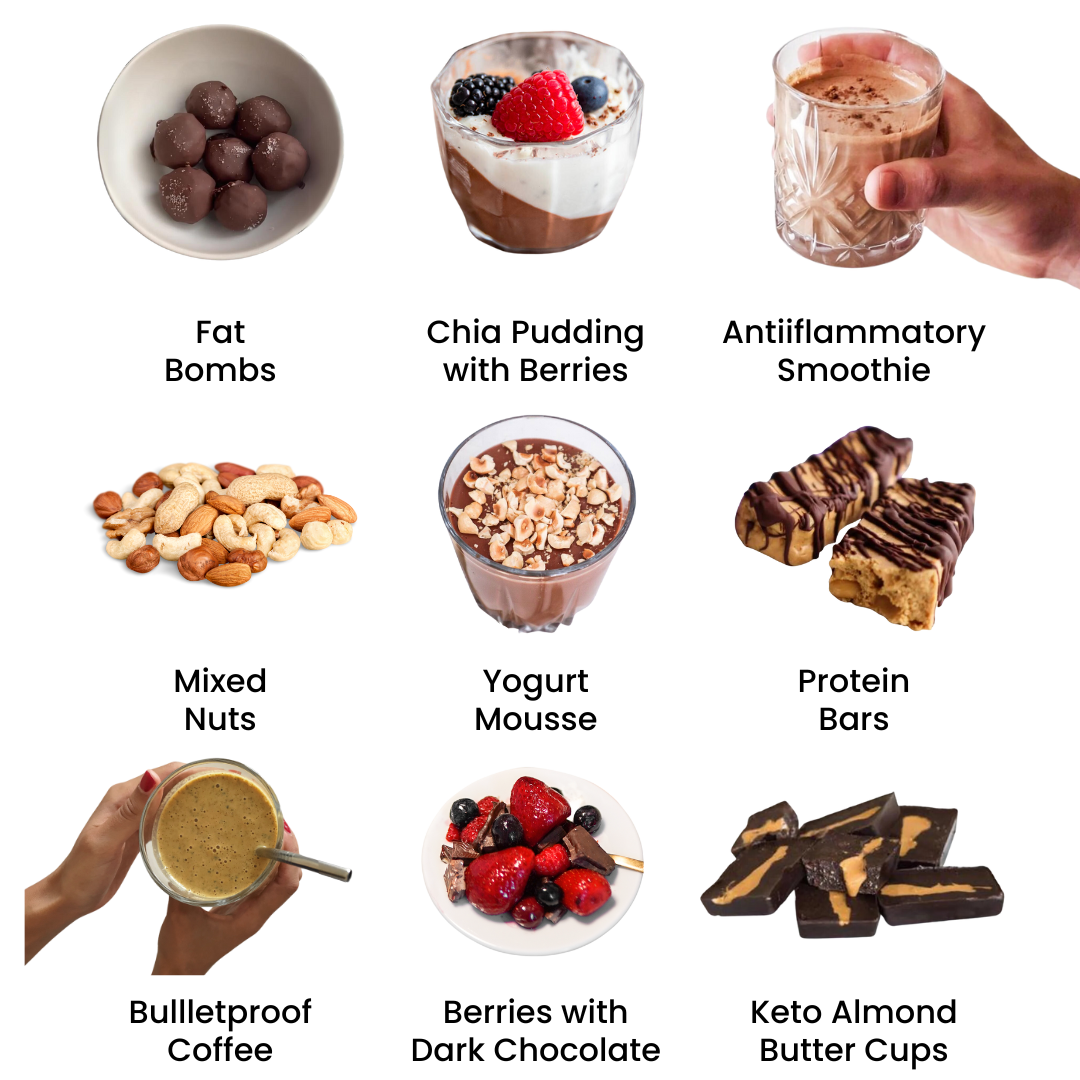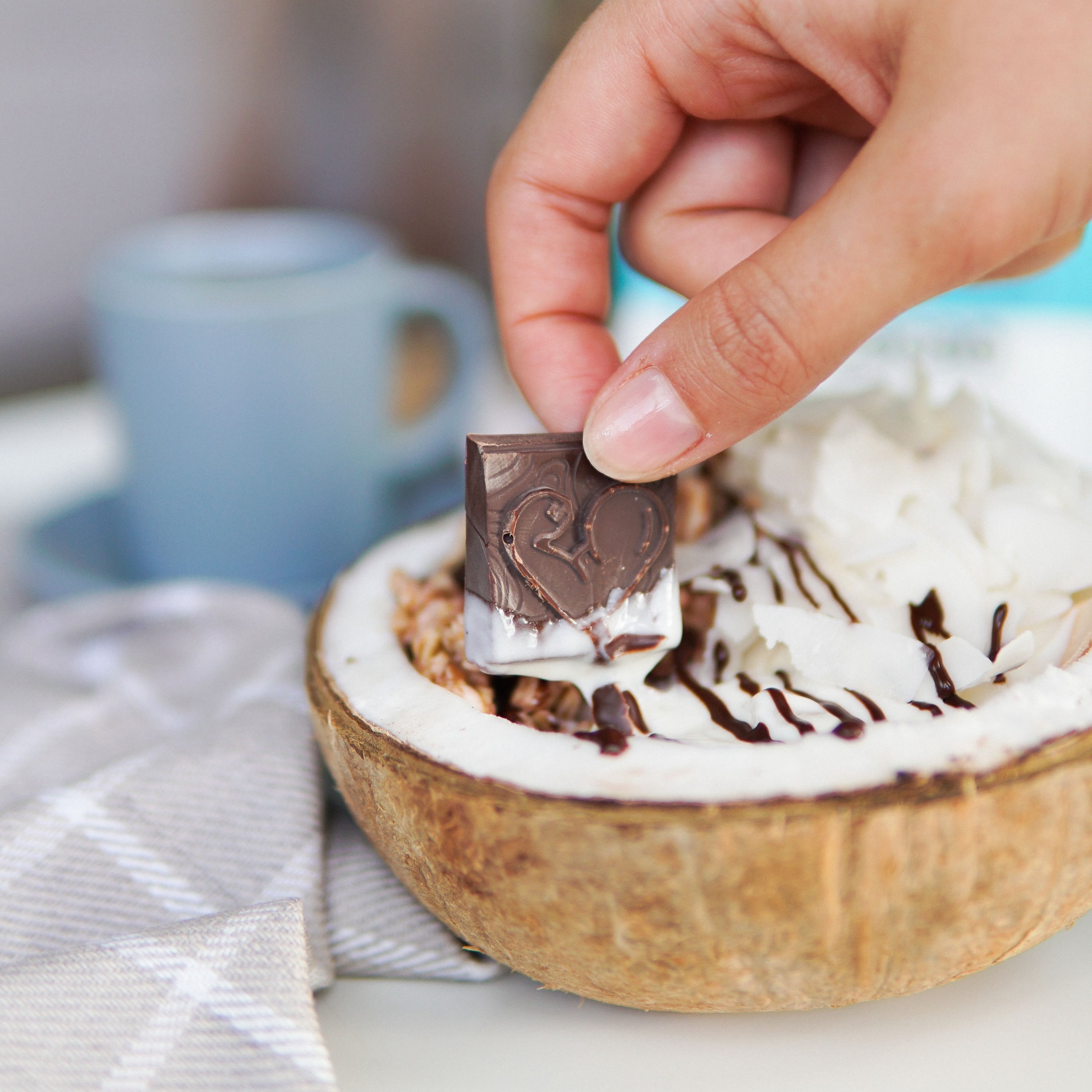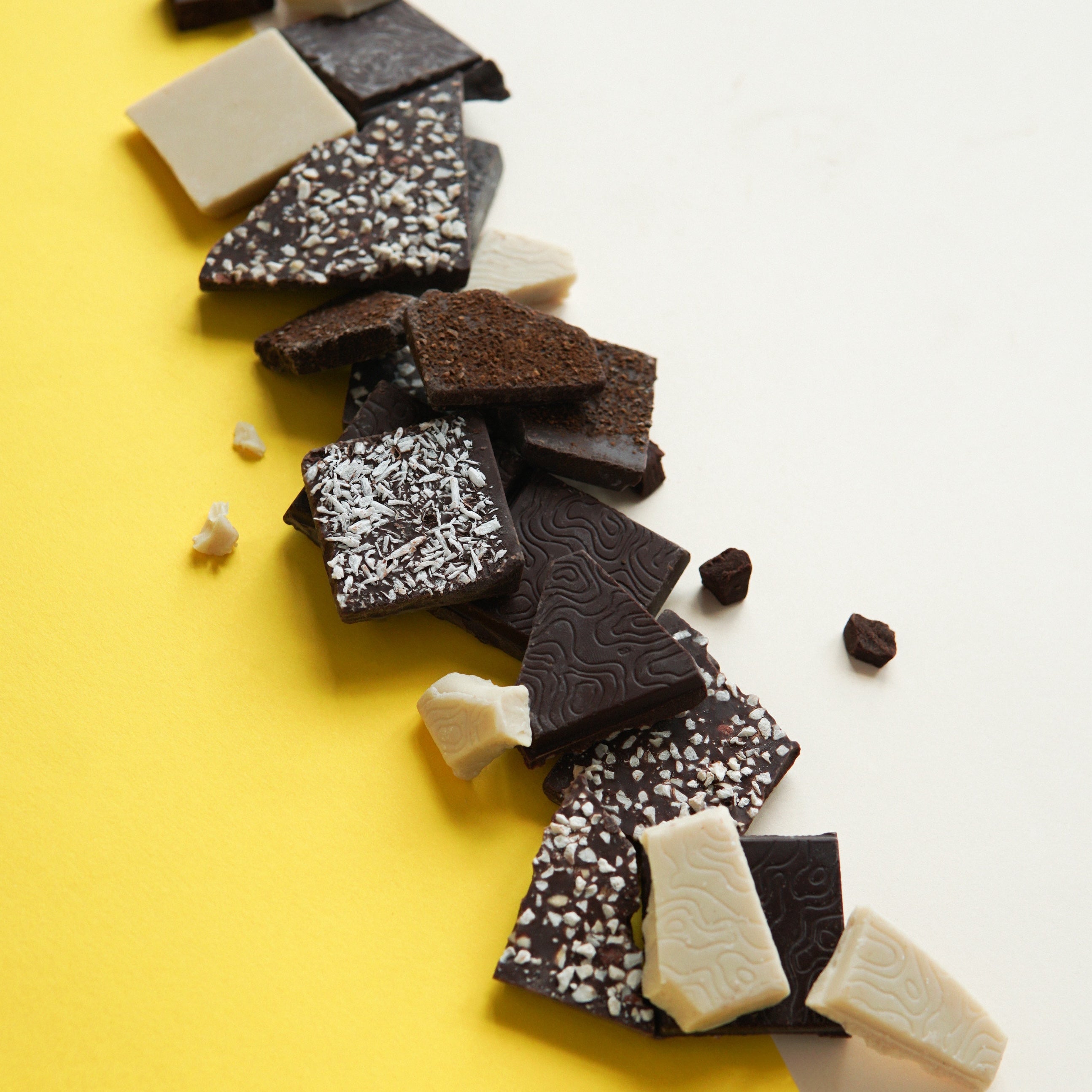Have you ever wondered when is the best time to snack or to have a sweet treat so that it impacts your blood sugar the least? Having sweet treats can have a different impact on your blood sugar depending on several factors.
Now, you know on of our favourite sayings: snack smart to feel your best. This is why in this article we are going to give you some useful tips on how to snack smart: when and how to have sweet snacks to avoid that glucose spike.
Why do I crave sweet snacks?
We all get those moments when our body craves sweets, however, to better respond to our bodies' needs, we need to understand what the cravings truly mean. Some of the most common reasons why we crave sweets can be:
- Blood sugar imbalances - Low blood sugar levels trigger cravings for quick energy from sweets
- Nutrient deficiencies - Deficiencies in nutrients like magnesium can cause cravings for specific sweet foods
- Hormonal changes - Hormonal fluctuations can increase cravings for sugary foods as well as affect and sometimes trigger our emotional eating
- Habits and conditioning - Regularly eating sweets at certain times can create habitual cravings
By understanding it, you’ll be able to implement some strategies that will help you satisfy your cravings in a healthier way and not compromise your health, and more specifically, your glucose levels.
Let's take it back a few thousand years, when our ancestors (hunter and gatherers) reached for berries and fruits for their nutrients and sugary content to provide them with energy for survival. Now, if we look at the reasons why most people consume these sweet artificial treats nowadays is because they kick our brain’s reward system into gear, releasing dopamine, the “feel-good” chemical. Making us feel better or happier but only for a limited time.
How can we satisfy these sweet cravings?
Firstly you need to identify the reason why these cravings are happening.
If it's an emotional reason or simply habits you've developed and no longer want to keep, you know they will simply go away. In the meantime, you can consume a healthier option of sweet treats to calm your cravings instead of giving into your old habits.
If it's about nutrient deficiencies such as magnesium, chromium, or iron, then you can consume foods high in cocoa which is rich in these minerals. If your blood sugar is low, fats and proteins are the best way to go. Many believe eating something with sugar is the solution, however, this might simply cause more problems in the long run. Consuming fats and proteins will raise your blood sugar in a much more stable way without causing your blood sugar to spike.
If you simply want a sweet treat because you have a sweet tooth and enjoy them (like us!) then we want to share with you the best ways to enjoy them without it affecting your health or causing your blood glucose to spike.
When is the best time to eat sweet snacks
The timing of consuming sweet snacks can influence how they affect your body and overall health. Some studies show that eating sweet snacks post-dinner can be detrimental for your health if you want to stabilise your blood sugar levels. Aim to eat sweets the following ways:
As a dessert (paired with healthy fats and protein)
Don’t eat the sweets alone, eat them as your dessert, after a healthy balanced meal and preferably after lunch, not after dinner. Having sweets as part of a balanced meal can help mitigate blood sugar spikes. The other components of the meal, such as protein, fiber, and fats, help slow down the absorption of glucose, which won’t cause a glucose spike.
Combine them with fats and protein
Consuming sweet snacks with proteins and healthy fats slows down the absorption of glucose, preventing crazy glucose spikes. For example, pair a piece of fruit with a handful of nuts or greek yogurt.
Other tips to eat sweet snacks without glucose spikes
Aim to have a high protein breakfast
Adding protein to your morning meal can bring significant benefits, such as balancing hormones and reduced hunger throughout the day. Protein is essential for building and repairing tissues, supporting muscle growth, and aiding various metabolic processes.
It is also known for its satiating effect, as it triggers the release of hormones that signal fullness and reduce appetite. Also, by having a balanced breakfast filled with protein, fat, and fiber you'll have less cravings throughout the day, which will help you have stable blood sugar levels.
For years, we were led to believe that starting the day with carbohydrates and a sweet breakfast was essential for energy, but this often resulted in health issues, blood sugar spikes, and energy dips from typical breakfast foods like cereal, toast, or bagels. We were missing one key macronutrient: protein.
Skip the after dinner snacking (a.k.a. midnight snack)
Of course you can still eat your sweet snacks when you crave them. However, as we’ve mentioned earlier in this article, you have to be smart about it. Try to avoid them before going to bed. If you have a sweet tooth and simply really want that dessert, opt for healthy versions high in healthy fats so that your blood sugar doesn't suffer.
Opt for Low-Glycemic Index (GI) Foods
Low-GI foods cause a slower, smaller rise in blood sugar levels. Examples of low-GI sweet snacks include berries, cherries, and dark chocolate with a high cocoa content (70% or more).
Watch portion sizes
Even healthy sweet snacks can cause a glucose spike if consumed in large quantities. Stick to small portions to keep your blood sugar levels stable.
Stay Hydrated
Drinking water can help dilute the sugar in your bloodstream and support overall metabolism. Make sure to stay well-hydrated throughout the day. And with that, avoid sugary drinks. Sugary drinks can cause rapid glucose spikes because they are absorbed quickly. Instead, enjoy solid snacks that require more digestion time.
Simple snacks that won’t spike your blood sugar
If you feel a little lost on what to snack without spiking your blood sugar, don’t worry we have a list of simple snacks that will help you stabilise your glucose for you.

By having your glucose levels stable you’ll be promoting a longer and healthier life for yourself and reducing the risk of chronic diseases, especially diabetes and cardiovascular conditions. It’s important to have a healthy and active lifestyle as well as a healthy and balanced diet and proper rest.




Laat een reactie achter
Alle reacties worden gemodereerd voordat ze worden gepubliceerd.
Deze site wordt beschermd door hCaptcha en het privacybeleid en de servicevoorwaarden van hCaptcha zijn van toepassing.